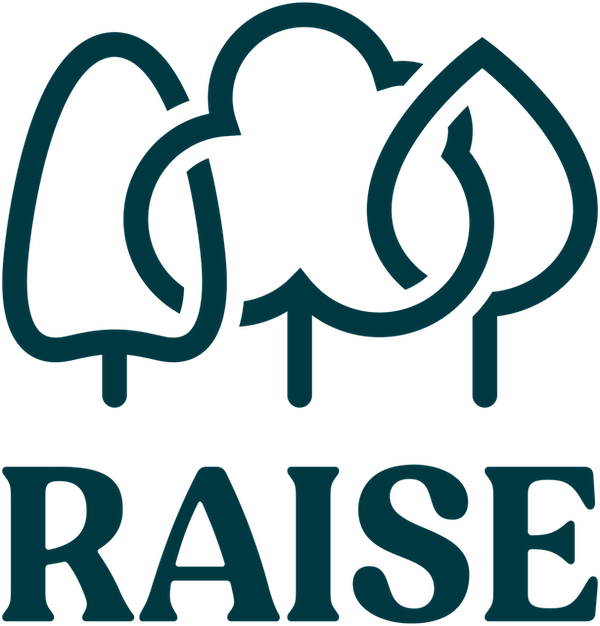Raise Partnership Group visits Park House Farm
We loved visiting Park House Farm near Cockermouth recently, where we met with the Raise Partnership Group and had the opportunity to show them the project we co-designed and planted with farmers Jen and Mark Lee.
Jen and Mark’s journey into diversification and regenerative farming began in 2017, following a ‘lightbulb moment’ when a faulty herbicide sprayer meant that a long strip of land in one of the fields had been left untreated. When their herd was returned to the field, every cow – without exception – headed straight for the strip of unsprayed land to graze on the grass and plants that had grown in the recent days, including native clovers, chicory, herbs and dandelions. After witnessing how their cows actively sought and thrived on a more diverse diet, Jen and Mark made the decision to stop all chemical fertiliser, pesticide and herbicide use, and received full organic accreditation in 2020.
The move to organic, regenerative farming meant that Jen and Mark could focus on a smaller herd of Jersey and Friesian cows, that graze outside for over 300 days a year and are 100% pasture fed. In 2019 they set up the Torpenhow Cheese Company, and today the rich milk from their Jersey-Friesian herd is used to make award-winning cheese, butter, yoghurt and ice cream. By developing their own business, they need less and can add value to their milk production before it leaves the farmyard.
In 2022 the couple approached Raise Cumbria for support and funding to create wood pasture on their land, and we worked with them to design a planting scheme that incorporated small groups of trees in areas of grazing to provide additional shelter and a food source for their cattle.
In total, we planted 410 trees on Jen and Mark’s land, to increase biodiversity and improve soil quality and water retention, as well as creating opportunities for sustainable timber production.
The couple also reinstated native hedgerows to help create wildlife corridors, and manage a further 25 acres of woodland on the farm, as well as the becks and streams that run through the land.
Regenerative farming is better for people, for nature, and the planet. Jen and Mark Lee’s commitment to regenerative farming is inspirational, and one they’ve pledged to uphold for the sake of their land, the livestock and all of our futures.
It was great to visit Park House Farm and showcase the project to our Partnership Group. It also gave us the opportunity to catch up with Jen and Mark and chat about their plans for the future, and check on the trees to assess their health and growth to ensure that, with ongoing care, they will continue to thrive.
Funded by Trees for Climate, we work in partnership with rural communities and businesses, supporting tree planting on farms in a way that complements the landowner’s vision, improves the environment, creates social and economic opportunities, and improves health and wellbeing. We provide free support and can access flexible funding that covers up to 100% costs of tree establishment, as well as up to 15 years of support payments to ensure quality and success.
Please get in touch if you would like to find out how planting trees could improve your land.






